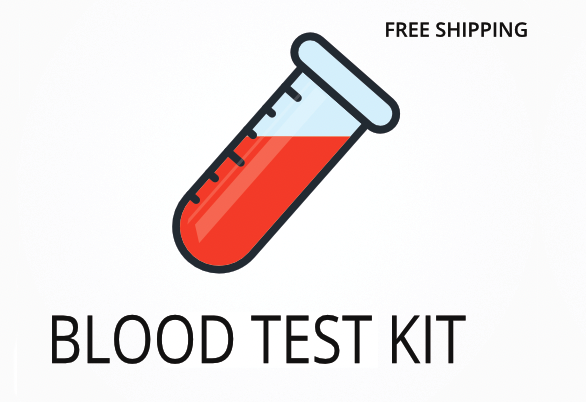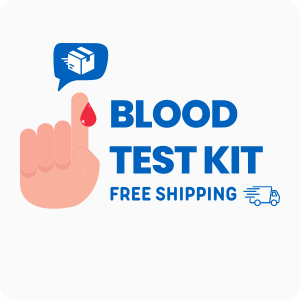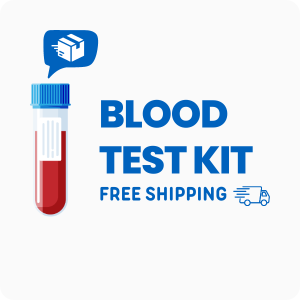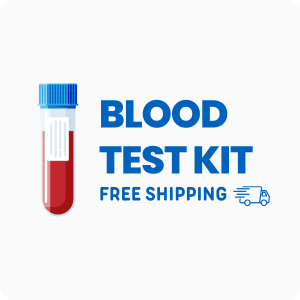Ordering the IgE Inhalant Allergy Advanced Test (69) | Great Plains
Ordering the IgE Inhalant Allergy Advanced Test (69) from Great Plains helps pinpoint specific inhalant allergens that may be causing symptoms like sneezing, nasal congestion, itchy eyes, or skin irritation. This test measures IgE antibodies in your blood, which are linked to allergic reactions from common triggers such as pollen, dust mites, pet dander, and mold. Interestingly, some people may have high IgE levels to certain environmental allergens without showing obvious symptoms, which can still affect their immune system over time.
When ordering this test, you gain access to detailed information about your body’s immune response to 69 different inhalant allergens. Benefits include:
- Identifying specific environmental triggers for symptoms like sneezing, congestion, or rashes
- Supporting targeted allergy management plans with your healthcare provider
- Reducing unnecessary exposure to allergens by knowing your sensitivities
- Helping to distinguish between allergy and non-allergy related symptoms
- Providing a comprehensive report for ongoing monitoring and follow-up
Who Should Consider Inhalant Allergen Sensitivity Testing
People who experience frequent sneezing, runny nose, or itchy skin during certain times of the year may benefit from this test. For example, someone who notices their symptoms worsen when cleaning the house or spending time outdoors in spring may want to know which specific allergens are responsible.
Ordering this test may also be helpful in these situations:
- Persistent nasal congestion or sinus pressure that does not improve with over-the-counter remedies
- Recurring skin rashes or hives that seem to flare up in specific environments
- Asthma symptoms that worsen indoors or after exposure to pets
- Children with eczema that flares up seasonally or after playing outside
- People with unexplained coughing or wheezing that only occurs in certain buildings, which can sometimes be linked to hidden mold exposure
Testing for inhalant allergies can help clarify which allergens are causing your symptoms, allowing for more precise management and avoidance strategies. Delaying this test may result in ongoing symptoms and missed opportunities to reduce exposure to specific triggers.
How to Prepare for Inhalant Allergy Blood Testing
Fasting is not required for this test, so you can eat and drink as usual before your blood draw. Always follow any instructions provided by your doctor or healthcare provider to ensure your sample is collected correctly and processed without delay.
Labs Included When Ordering Your IgE Inhalant Allergy Advanced Test (69) | Great Plains
| Test Name | Reference Range | Significance | High Levels Mean |
|---|---|---|---|
| 69 IgE Inhalant Allergens | 0.00 – 0.34 kU/L (per allergen) | This test measures IgE antibodies to 69 common inhalant allergens, including pollen, dust mites, pet dander, and mold. It helps identify which specific airborne substances trigger allergic reactions. | High levels of IgE to a specific allergen suggest a strong immune response and likely allergic symptoms when exposed to that substance. |
Reference ranges may be updated periodically by the laboratory, so always review your report for the most current values.
IgE Inhalant Allergy Advanced Test (69) | Great Plains FAQ
Is there IgE Inhalant Allergy Advanced Test (69) | Great Plains testing near me?
This test is provided as a kit that can be collected at a local draw site; check the draw location link at the top of the page. For those experiencing ongoing allergy symptoms, having a nearby collection site makes it easier to get tested quickly and start managing triggers sooner.
How do I interpret the test results?
While your treating physician should review your results, you can also schedule a one-on-one test results review with our clinical team for a detailed explanation and next steps.
What is the cost of the test?
The price listed for this test includes standard shipping to you and return shipping to the lab; draw fees may apply. Ordering this test can help you identify specific allergens, which may speed up relief from symptoms like sneezing, congestion, or skin irritation.
How often should I retest?
Retesting is usually recommended every 1-2 years, or sooner if your symptoms change or new exposures occur. Regular testing helps track changes in your immune response and supports ongoing allergy management.
How accurate is the test?
This test uses enzyme-linked immunosorbent assay (ELISA) to measure IgE antibodies, with a specificity of 98% and sensitivity of 97%. TrueHealthLabs.com partners with CLIA-certified and CAP-certified laboratories to uphold rigorous testing standards for dependable results.
Important Notes
- This test can not be collected or mailed from New York State. Contact us with questions.
Medical Review Board
Reviewed by Jeff Donohue M.D. from Body Logic and Brady Hurst DC, CCCN. Written by True Health Lab’s team of editorial health contributors.
Disclaimer: This information is for educational purposes only and not intended as medical advice. Consult your healthcare provider for personalized guidance.
Why Customers Trust True Health Labs - What People are saying
Also rated 4.6 out of 5 based on 3452 ShopperApproved reviews- See all TrueHealthLabs.com reviews.









